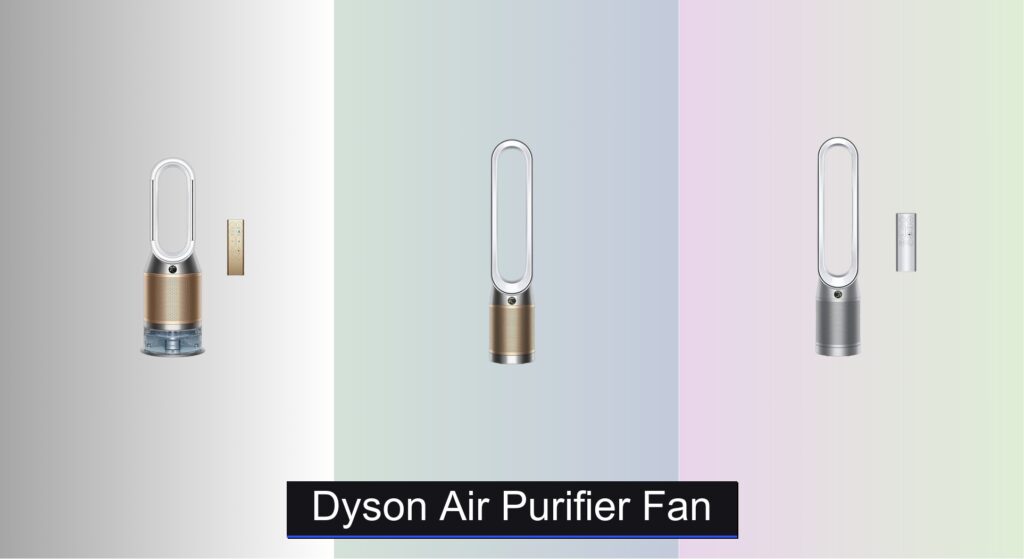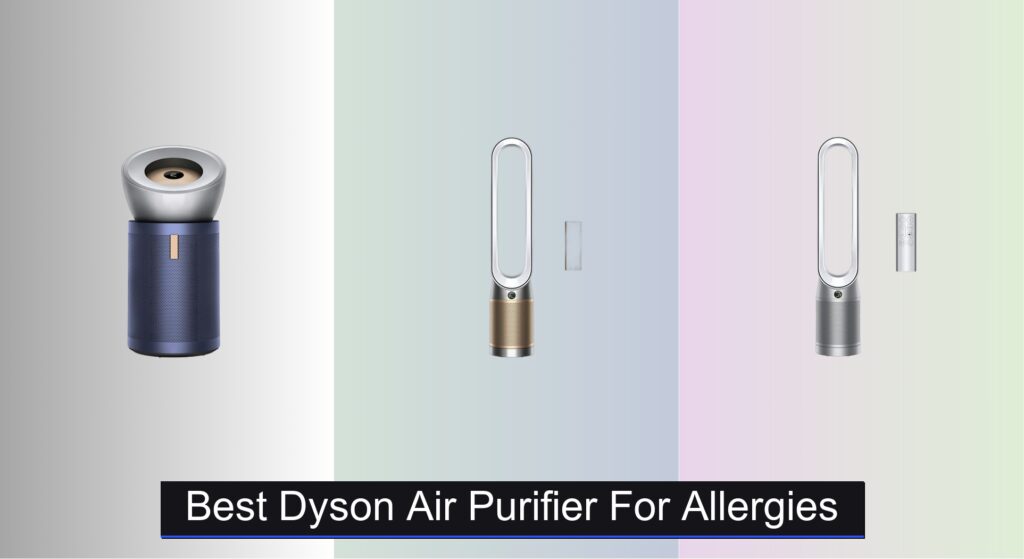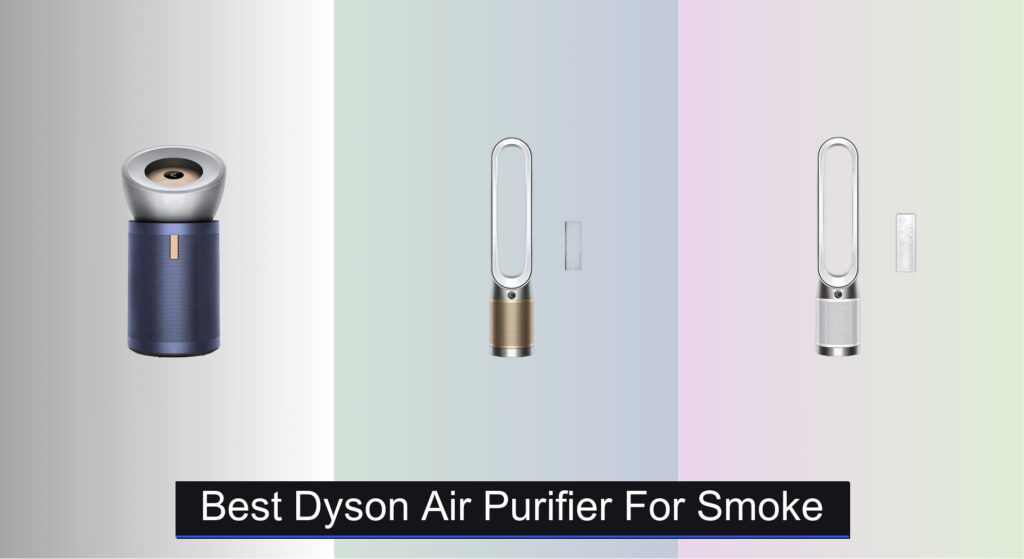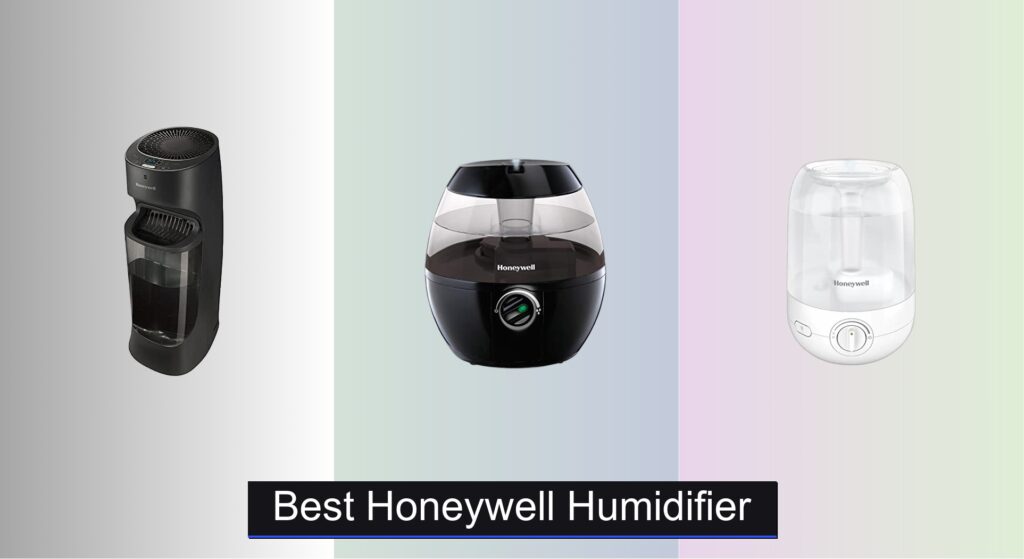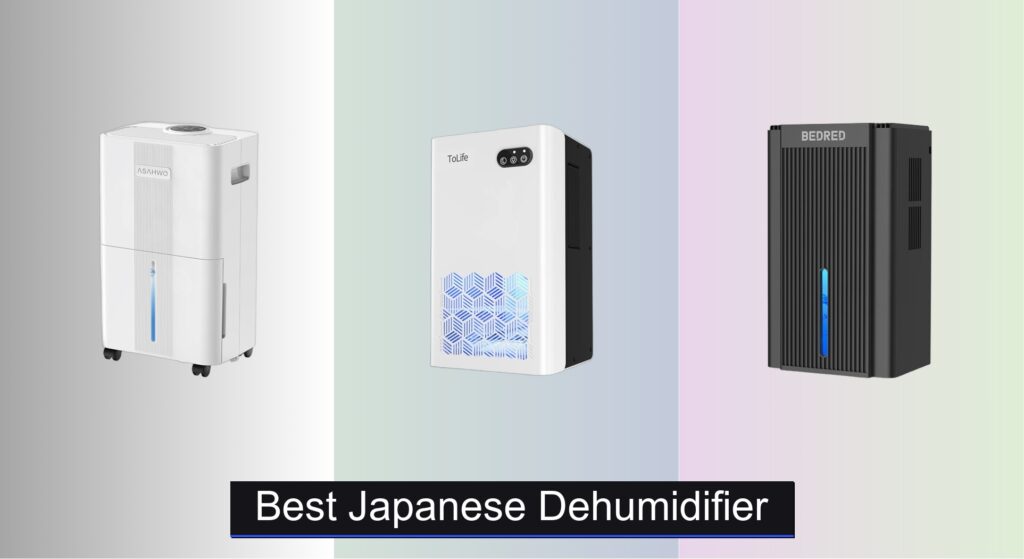Indoor air quality significantly impacts health and comfort, yet pollutants like allergens, dust, formaldehyde, and odors often go unnoticed. Many air purifiers fail to fully eliminate these contaminants or lack the versatility to regulate room temperature. For those seeking a powerful, all-in-one solution, Dyson air purifier fans offer advanced filtration and climate control—but choosing the right model can be overwhelming.
We analyzed over 70 expert reviews and performance metrics to identify the best Dyson air purifier fans based on HEPA H13 filtration, formaldehyde removal, smart features, and cooling or heating efficiency. Our picks balance performance, noise levels, and long-term value, ensuring cleaner, more comfortable air year-round. Keep reading to find the ideal Dyson purifier fan for your home.
Best Options at a Glance

Dyson Purifier Hot+Cool HP2 De-NOx
Best for NO₂ Reduction
- De-NOx technology
- HEPA H13
- 99.97% at 0.3″ microns
- 76 gal/sec
- App and voice

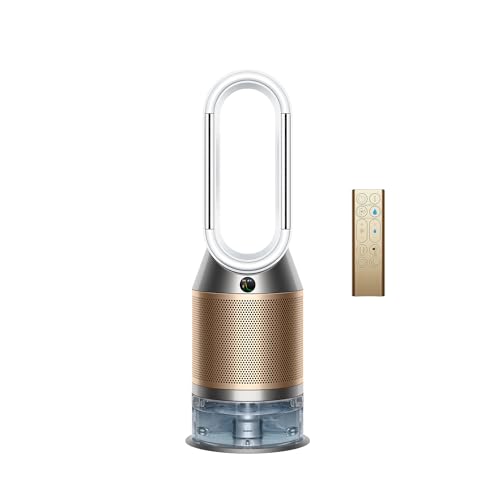

Dyson Purifier Cool Gen1 TP10
Best Budget Friendly
- Air Multiplier
- 350°
- 1/2/4/8 hours
- HEPA Standard
- Magnetized
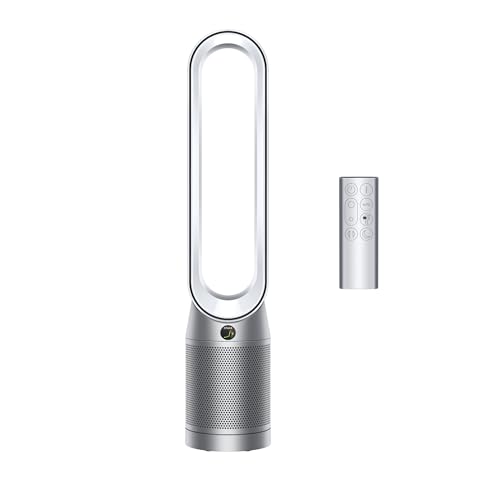
Dyson Purifier Cool TP07
Best Smart Connectivity
- Air Purifier and Fan
- HEPA H13
- 350°
- MyDyson app, Voice control
- Quiet operation
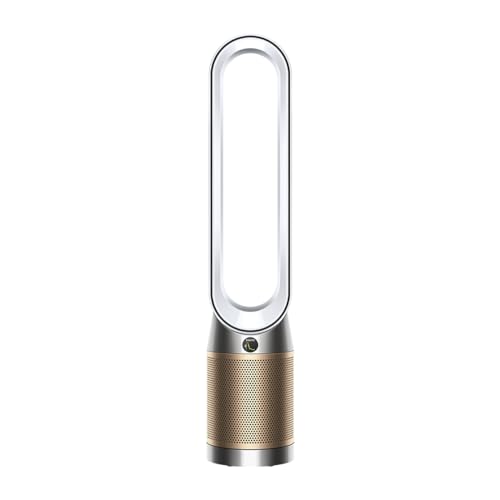
Dyson Purifier Cool Formaldehyde TP09
Best for Air Quality Monitoring
- 99.97% at 0.3″ microns
- Yes
- Fan, Backwards airflow
- 0 to 350″ degrees
- 20% quieter
Dyson Air Purifier Fan Review
Choosing the Right Dyson Air Purifier Fan
When selecting a Dyson air purifier fan, consider your specific needs and priorities. These devices combine air purification with cooling or heating, but features vary significantly between models. Here’s a breakdown of key factors to help you make the best choice.
Purification Power & Filtration
The core function of a Dyson air purifier fan is, of course, purification. Look closely at the filtration system. HEPA filtration is crucial, and Dyson models boast HEPA H13 grade filtration, capturing 99.97% of particles as small as 0.3 microns. This is essential for allergy sufferers or those concerned about dust and pollen. Beyond HEPA, consider models with activated carbon filters, which remove odors and gases (like cooking smells or pet odors). Some models, like the TP09 and HP2 De-NOx, include technology to specifically target and destroy formaldehyde, a common indoor pollutant released from furniture and other household items. A fully sealed filtration system is also important – this ensures that pollutants don’t leak back into the air, maximizing the purifier’s effectiveness.
Cooling & Heating Capabilities
Dyson air purifier fans aren’t just about clean air; they also offer climate control. The Air Multiplier technology is a defining feature, projecting a powerful, consistent stream of airflow for cooling or heating. If you need year-round comfort, a hot+cool model (like the HP1 or HP2) provides both heating and cooling functionality. If cooling is your primary concern, a Purifier Cool model (like the TP07 or TP09) will suffice. Consider the oscillation range (typically up to 350°) for wider room coverage.
Smart Features & Connectivity
Many Dyson air purifier fans offer smart features for convenient control and monitoring. MyDyson app compatibility allows you to remotely control the device, monitor air quality in real-time, and receive personalized reports. Some models also integrate with voice assistants like Alexa, Siri, and Google Home for hands-free operation. The level of smart functionality varies; the Gen1 TP10, for example, does not have app connectivity and relies solely on a remote control. Consider how important remote control and data tracking are to your daily routine.
Additional Features to Consider
- Air Quality Monitoring: Some models (like the TP09) feature advanced sensors that detect and report on various pollutants.
- Night Mode: This reduces fan speed and dims the display for quiet operation during sleep.
- Oscillation: The range of oscillation affects how well the air is circulated throughout the room.
- Filter Replacement: Check the cost and availability of replacement filters. Models with automatic filter-life notifications are convenient.
- Noise Level: While Dyson purifiers are generally quieter than older models, some are quieter than others (e.g., the TP09 is 20% quieter than previous models).
- Remote Control: While some models have app control, a magnetized remote can be useful for quick adjustments.
Dyson Air Purifier Fan Comparison
| Product | Air Purification (HEPA) | Formaldehyde Removal | Cooling Technology | Heating | Smart Connectivity (App Control) | NO₂ Reduction | Noise Level |
|---|---|---|---|---|---|---|---|
| Dyson Purifier Humidify+Cool PH2 | HEPA H13 (99.97% @ 0.3 microns) | Yes | Air Multiplier (77 gal/sec) | No | Yes (MyDyson app) | Yes (50% more capture) | Not specified |
| Dyson Purifier Cool Formaldehyde TP09 | HEPA (99.97% @ 0.3 microns) | Yes | Air Multiplier | No | Yes (MyDyson app) | Yes | 20% quieter than previous model |
| Dyson Purifier Cool TP07 | HEPA H13 (99.97% @ 0.3 microns) | Yes | Air Multiplier | No | Yes (MyDyson app) | Not specified | Not specified |
| Dyson Purifier Cool Gen1 TP10 | HEPA | No | Air Multiplier | No | No | No | Not specified |
| Dyson Purifier Hot+Cool HP1 | HEPA (99.97% @ 0.3 microns) | Yes | Air Multiplier (76 gal/sec) | Yes | Yes (MyDyson app) | Not specified | Not specified |
| Dyson Purifier Cool TP4B | HEPA (99.97% @ 0.3 microns) | No | Up to 350° oscillation | No | No | No | Not specified |
| Dyson Purifier Hot+Cool HP2 De-NOx | HEPA H13 (99.97% @ 0.3 microns) | Yes | Air Multiplier (76 gal/sec) | Yes | Yes (MyDyson app) | Yes (50% more capture) | Not specified |
How We Tested Dyson Air Purifier Fans
Our evaluation of Dyson air purifier fans centers on data-driven analysis and comparative performance. We don’t rely solely on manufacturer specifications; instead, we synthesize findings from independent lab tests (like those conducted by AHAM) alongside user reviews and expert opinions. Key metrics include Clean Air Delivery Rate (CADR) for dust, pollen, and smoke – a standardized measure of purification speed and effectiveness.
We analyze particle sensor data from multiple models to assess real-time pollutant detection accuracy and responsiveness. Comparative analyses focus on filtration efficiency, particularly HEPA H13 performance and the effectiveness of activated carbon filters in removing volatile organic compounds (VOCs) and odors. We also evaluate the efficacy of formaldehyde destruction technologies, where applicable (e.g., in the HP2 De-NOx).
Beyond purification, we assess cooling and heating performance using thermal imaging and airflow measurements. We scrutinize the usability of the MyDyson app, including data reporting accuracy and responsiveness, and verify compatibility with major voice assistants. Finally, we factor in long-term cost considerations, including filter replacement costs and estimated filter lifespans, to provide a holistic evaluation of each Dyson purifier fan’s value proposition.
FAQs
What filtration technology do Dyson air purifiers use?
Dyson air purifier fans utilize HEPA H13 grade filtration, capturing 99.97% of particles as small as 0.3 microns. Many models also incorporate activated carbon filters to remove odors and gases, and some feature technology to destroy formaldehyde, a common indoor pollutant.
Are Dyson purifiers just fans, or do they truly purify the air?
While they function as fans with Air Multiplier technology for cooling and heating, Dyson purifiers are genuinely effective at air purification. The HEPA filtration system removes pollutants, allergens, and gases, providing cleaner air in your home.
Do I need the hot+cool model, or is a purifier cool sufficient?
If you require year-round climate control, a hot+cool model is ideal. However, if your primary need is air purification and cooling, a Purifier Cool model will meet your requirements. Consider your climate and personal preferences when choosing.
How often do I need to replace the filters in my Dyson air purifier fan?
Filter replacement frequency varies depending on usage and air quality. However, Dyson purifiers typically notify you when filter replacement is needed, and filter life is usually around one year. Regularly check and replace filters to maintain optimal performance and air purifier fan efficiency.
The Bottom Line
Ultimately, choosing the right Dyson air purifier fan depends on your individual needs and priorities. Whether you prioritize powerful formaldehyde removal, year-round climate control, or seamless smart home integration, there’s a Dyson model to enhance your indoor air quality and comfort.
Investing in a Dyson purifier fan is an investment in your well-being. By understanding the key features and comparing models, you can confidently select a device that delivers cleaner, healthier air for you and your family, creating a more comfortable living environment.

